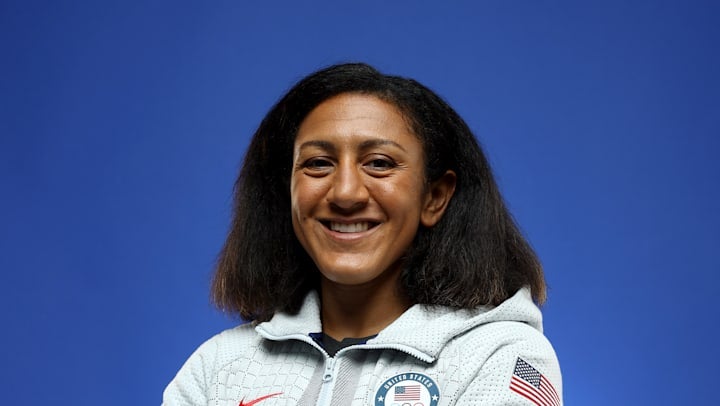
It’s hard to think one of the best bobsledders in the world has the same set of challenges as a 10-year-old.
But, that’s exactly what Olympic silver medalist Elana Meyers Taylor is working with Classroom Champions to convey. Founded in 2009 by Steve Mesler, a bobsledder who also won Olympic gold in 2010, and his sister, Dr. Leigh Parise, an education researcher, Classroom Champions enlisted the help of world-class athlete mentors like Meyers Taylor to teach students fundamental social emotional learning techniques. Qualities like conflict resolution, emotional reasoning, grit and determination are taught to K-8 students through digestible methods kids will gravitate towards.
They have recently partnered with the Education for Persistence and Innovation Center (EPIC), a global interdisciplinary research center at Teachers College, Columbia University, dedicated to figuring out how to turn failure into learning opportunities toward success. Together, the two organizations use techniques from cognitive science, social-cultural psychology, neuropsychology, oral history, and education to study the critical role that failure plays as a catalyst for learning, innovation, and career development. Classroom Champions puts this to practice each day with its classroom programming.
“We aim to make it really understandable,” said Meyers Taylor, who works alongside educators and staff from Classroom Champions to create virtual workshops to ensure she’s articulating the appropriate educational goals for each classroom. “Bobsledding taught me the value of setting short-term goals to eventually get to the long-term goal, which was the gold. If my aim is to get stronger, I need to commit to lifting a certain amount of weight in a workout—if one of my kids’ wants an A, their plan needs to focus on getting today’s homework assignment completed,” she explained.
The Georgia-native shared that she and her husband are raising a son with Down syndrome, so this work hits home for her.
“Although some children who have Down syndrome, like my son, are energetic and sociable , there are other opportunities for social-emotional growth that I’ve learned can be fostered through some of the components I support through my involvement with Classroom Champions,” Meyers Taylor said.
Studies have shown that in schools where Social and Emotional Learning (SEL) programs are implemented, students have improved in each of the five categories – skills, academics, social behavior, emotional distress, attitudes and conduct problems – by at least 20 percent, with skills increase being the largest, going from 21.5 percent to 78.5 percent.
“Classroom Champions’ goal is to help kids understand that these Olympic athletes are just like them: human,” said Mesler. “They’ve just learned how to manage their emotions in a way that allows them to push through challenges even if they didn’t think they could. It sounds daunting, so that’s why we’re offering these tools to students early on in life to get them on the right path for success as they grow older.”